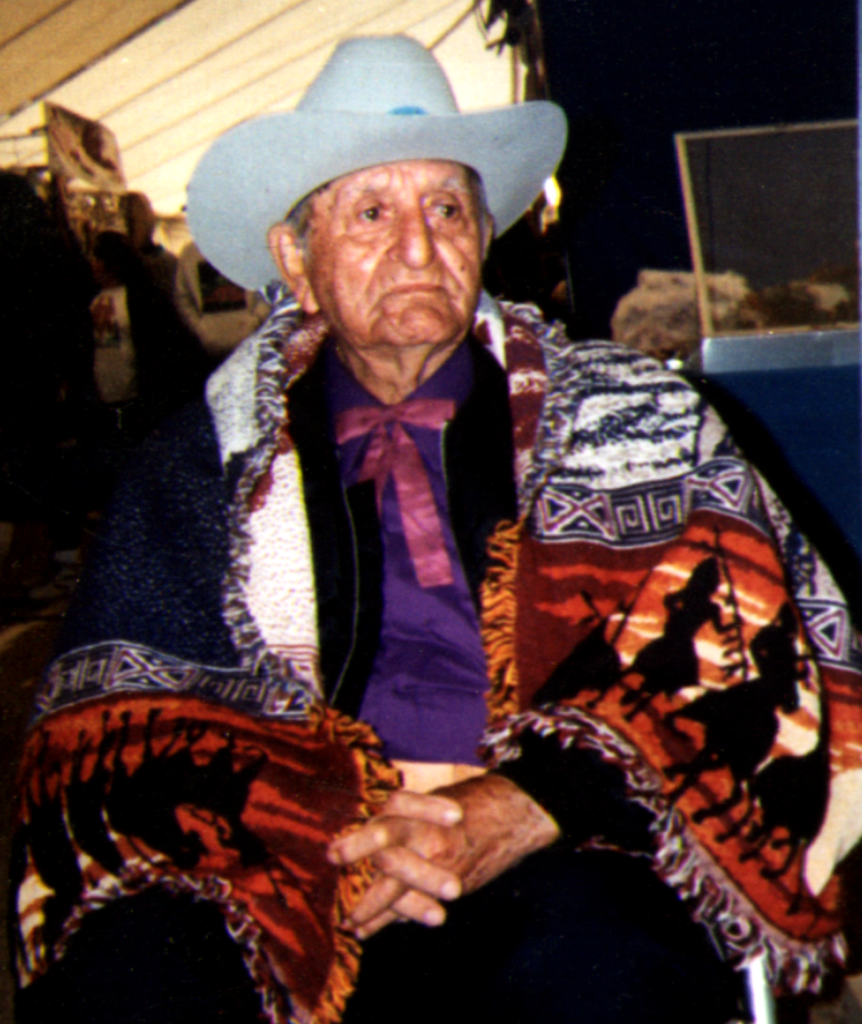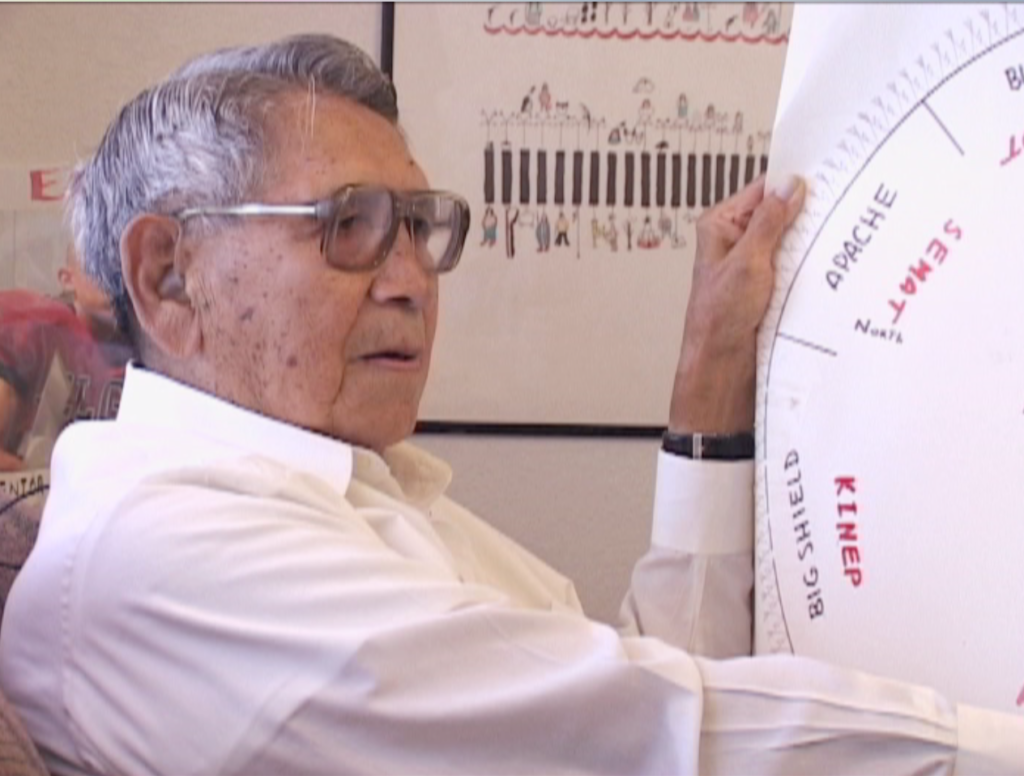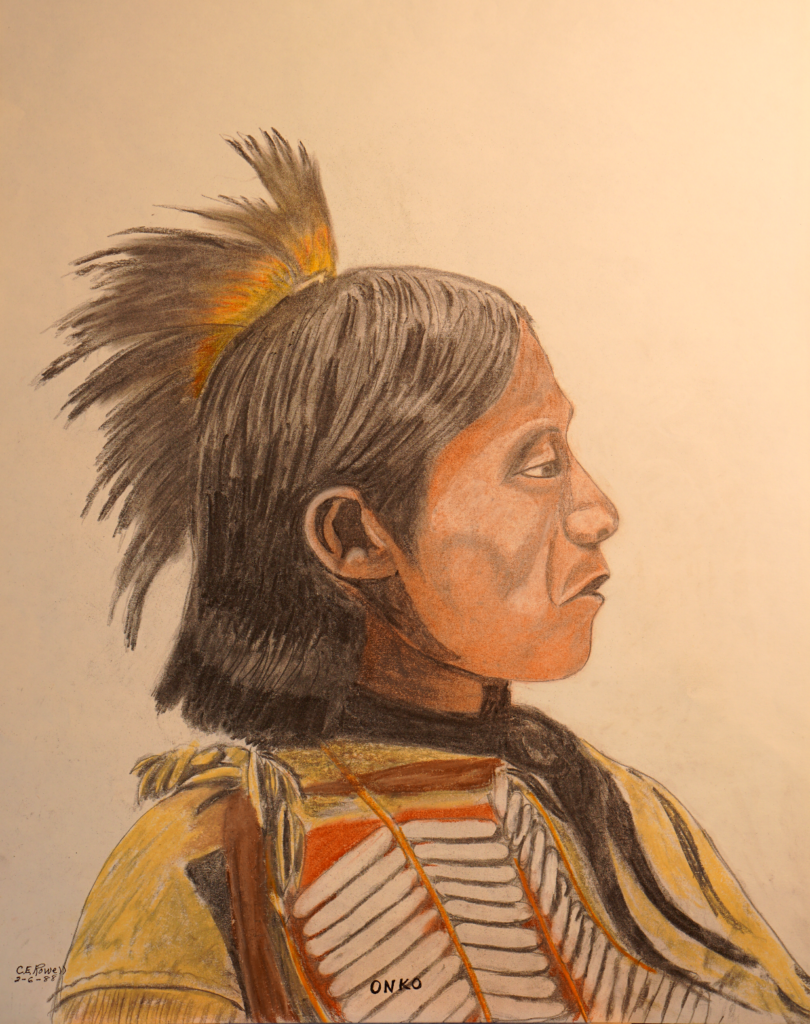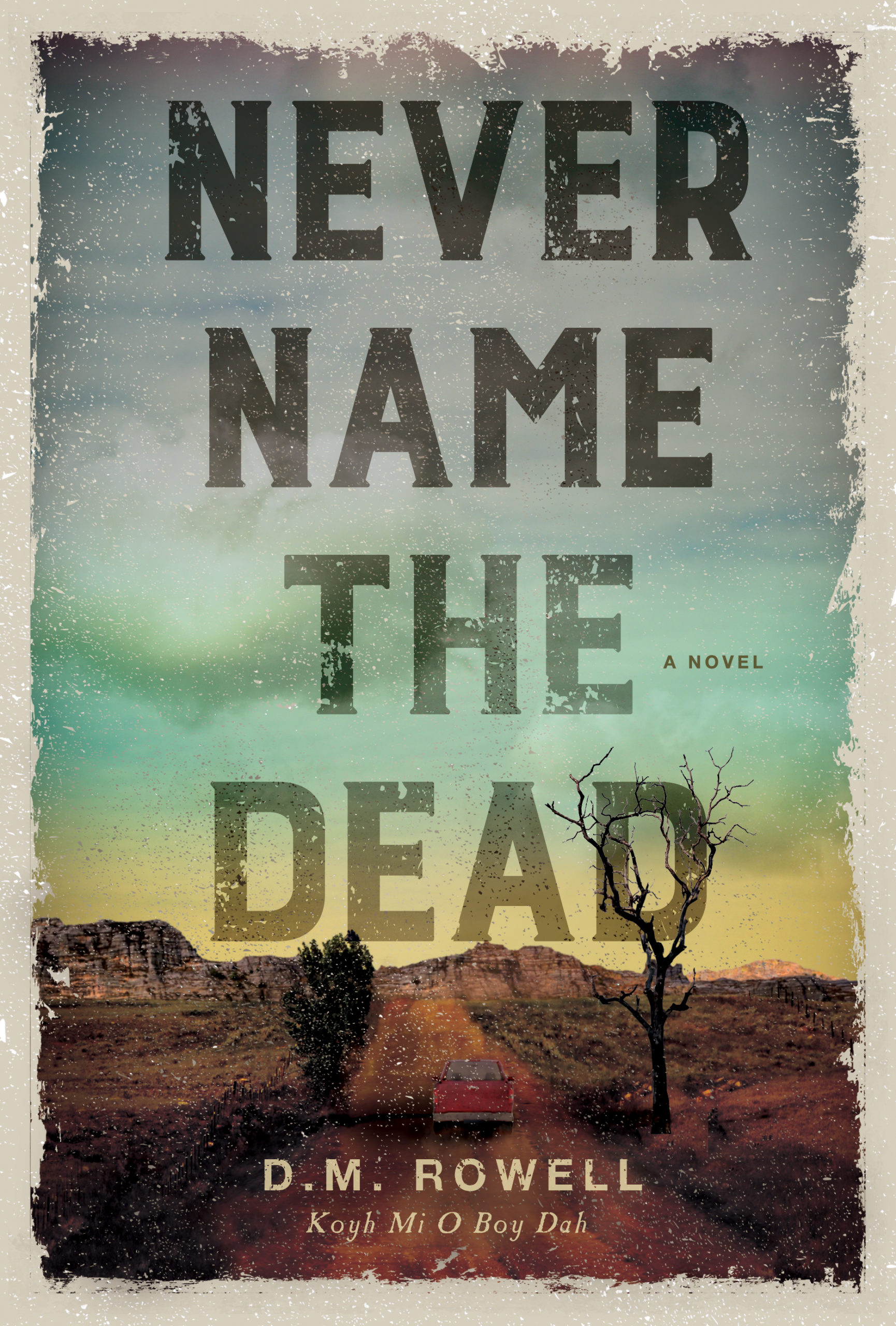Just over twenty years ago, I brought broadcast quality video and audio equipment to my Grandfather’s home in Meers, Oklahoma to preserve precious stories from Kiowa Grandparents.
My grandpa, C. E. Rowell lived his life within five miles of where he had been born near Jimmy Creek Spring; the land allotted to his Grandpa Jimmy when the government disbanded the Kiowa, Comanche, Apache Reservation to take more land and make room for a State.

I began videotaping my Grandfather and his stories as he approached his nineties.
I had wanted to capture the Master Storyteller of my childhood. I wanted others, future generations to experience the Kiowas through his rhythmic voice, stories, and art.
I had waited too long.
His breath, his voice, his life force was fading. Grandpa knew the stories, remembered the details, but he didn’t have the breath to link words together continuously any longer. Yet, Grandpa wanted my project to preserve Kiowa stories through the voices of Kiowa grandparents to move forward.
Grandpa took me to Atwater Onco, Great Grandson to Grandpa’s childhood mentor Onco, the Calendar Maker. Atwater had been studying with Grandpa to learn more about the stories within the two Kiowa Calendars.
It was from Atwater I was to listen, question and learn from next.

The Gift of Oral Traditions
With Atwater and Grandpa, I visited the oldest people in the Kiowa Tribe asking to have stories, songs and crafts given on camera so that we could share them with others, with the future. Each Elder gave so much more than requested.
Notice, I said given.
A Kiowa story, song, craft, or dance shared can only be repeated if the owner gives it to you.
I followed this Kiowa rule. I approached traditionally and asked these Kiowa grandparents to give the gift of their remembered oral traditions for future generations, to allow cameras to capture their stories and memories.

Many of the Kiowa stories and ceremonies given were recorded for the first time.
It’s For the Kiowa People
Over twenty years ago, Atwater Onco explained his passion in preserving Kiowa history.
“All my life, I’ve been interested in the history of the Kiowas through stories I’ve heard from my elders. As I get older, it comes back to me, the history. As I recall it, I run over there, and write where it belongs in certain family histories, and I put it down.
I do it for the Kiowas, so they’ll know their relationship in the tribe. They’ll know one of their relatives did this.
Kiowa People today, probably don’t even know what a certain ancestor did that’s outstanding in the Kiowa Tribe. Because, they don’t think about it anymore, but I do.
My Daddy was a tribe historian because he was the grandson of Onko, who was also the tribe historian and writer of the Onco Calendar.
I guess I inherited that weight through my Grandpa, Onko.”

Preserving Kiowa Oral Traditions
I understood feeling the weight of responsibility to not break the Kiowa multi-generation sharing of oral traditions. I knew our oral traditions were always one generation away from extinction. I too felt that weight.
I still do.
Vanishing Link
Twenty years ago I produced a documentary on the Kiowa tribe, Vanishing Link. I wanted to preserve priceless Kiowa stories in the manner they should be shared, through the voices of Kiowa Grandparents.
A Murder Mystery with a Twist of Kiowa
The weight of responsibility to share Kiowa stories continues.
It’s one of the reasons I decided to write my first book, Never Name the Dead.
Never Name the Dead combines insights into the Kiowa culture with a light-hearted murder mystery. It’s a fun way to share the stories of my Kiowa Grandparents. Another way to make sure the Kiowas are not forgotten.

Read more Stories from Kiowa Grandparents